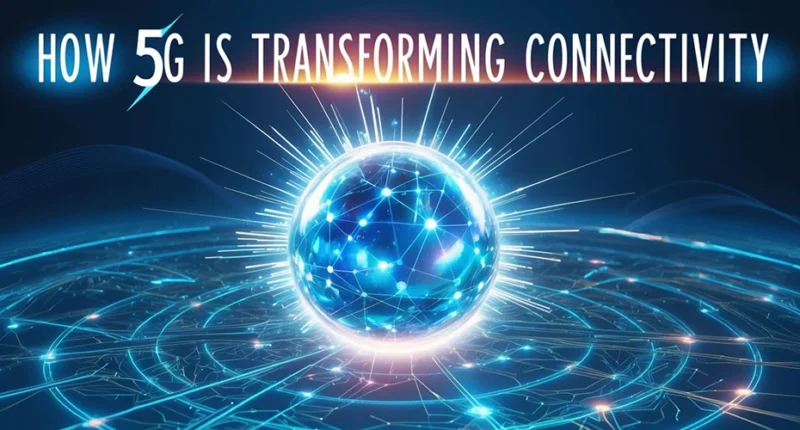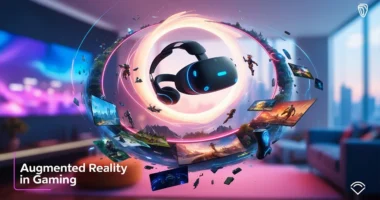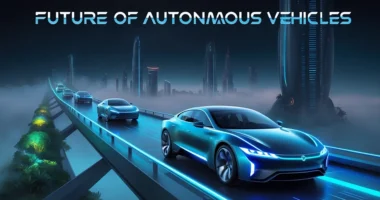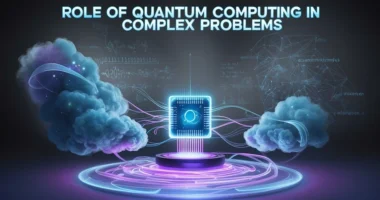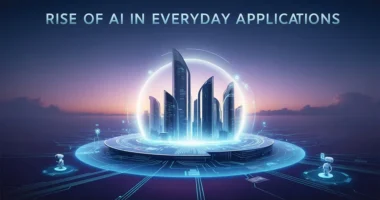Table of Contents
5G is the fifth generation of mobile network technology, and it’s creating a huge shift in how we connect to the internet and use our devices. While 4G gave us faster speeds and better mobile experiences, 5G takes things to the next level. It promises not just faster internet, but also new opportunities for businesses, healthcare, education, and even entertainment. Let’s dive into how 5G is transforming connectivity and what it means for us.
What Is 5G?
5G is the latest advancement in mobile networks. It’s much faster than 4G, offering download speeds that can be up to 100 times faster. But it’s not just about speed. 5G also brings lower latency (the time it takes for data to travel), higher capacity (more devices connected at once), and more reliable connections. This combination of features makes 5G more capable of handling the growing number of connected devices and the increasing demand for internet-based services.
Faster Speeds for Better Experiences
One of the biggest advantages of 5G is the incredible speed. With 5G, you can download movies, games, and large files in seconds. Streaming services like Netflix or YouTube will offer ultra-high-definition videos without buffering. For gamers, this means playing games with near-instant responses, giving a smoother, more immersive experience. Even everyday activities like video calls and web browsing will be quicker and more responsive.
For example, imagine downloading an entire movie in just a few seconds, instead of waiting for several minutes. This is possible with 5G’s faster download speeds. It also means that you can enjoy faster browsing, seamless video streaming, and quicker app downloads, all without any frustrating delays.
More Devices Connected Simultaneously
Another benefit of 5G is its ability to handle a much larger number of devices connected at once. With the growing number of smart devices in homes, offices, and even cities, 5G ensures that your phone, smart speaker, smart thermostat, and other gadgets can all work together without overloading the network.
In the past, when many devices were connected to a network, speeds could slow down or the connection could drop entirely. 5G changes this by providing the capacity to support millions of devices within a small area. Whether you’re at a sports stadium, a busy airport, or a crowded city street, 5G ensures you can stay connected even when everyone else is online too.
Impact on Smart Cities and IoT
5G is a key enabler for the Internet of Things (IoT), which refers to all the devices that can connect to the internet, like smart appliances, security cameras, cars, and even streetlights. 5G will make it possible for these devices to communicate with each other more efficiently and in real time.
For example, in smart cities, 5G can help manage traffic lights, improve public safety, and monitor air quality. Imagine a traffic system that adjusts lights based on real-time traffic flow, or waste collection services that optimize routes based on sensor data. With 5G, these types of innovations can happen faster and more effectively, making cities smarter and more efficient.
Transforming Healthcare
The healthcare sector is set to benefit greatly from 5G technology. With its high speeds and low latency, 5G will enable telemedicine and remote surgeries. Doctors can perform procedures in real-time, even if they are miles away from the patient, using robotic tools controlled by 5G networks.
Additionally, 5G can support wearable health devices that continuously monitor a person’s health and send data to doctors instantly. For example, heart patients can wear smart monitors that send data to their healthcare provider, allowing doctors to make quicker decisions without needing in-person visits.
Changing the Future of Transportation
5G will play a big role in the future of transportation, especially with the rise of autonomous (self-driving) vehicles. These vehicles rely on fast, reliable communication to safely navigate the roads. 5G’s low latency and fast data transfer capabilities will allow self-driving cars to share information with each other and with traffic signals in real time.
This communication can improve safety, reduce traffic jams, and make driving more efficient. For example, cars will be able to “talk” to each other and adjust their speed to avoid accidents or traffic build-ups, all thanks to 5G’s quick and reliable connectivity.
Revolutionizing Business and Industry
For businesses, 5G will open up new opportunities for innovation and efficiency. It will allow factories to implement smarter automation, where machines and robots can work together with minimal human oversight. 5G’s fast speeds and ability to handle many devices at once mean that industries can improve production lines and streamline processes like never before.
In addition, businesses can adopt new models like virtual and augmented reality for training, product design, and customer experiences. These technologies rely heavily on fast and reliable connectivity, which 5G will provide.
The Future of 5G
While 5G is already being rolled out in many areas, there’s still a lot of work to be done. Over the next few years, we can expect 5G networks to expand even further, making them accessible to more people around the world. As the technology evolves, we will see even more exciting applications that we can’t yet imagine, from virtual reality experiences to new innovations in AI and robotics.
Conclusion
5G is much more than just faster internet. It’s transforming the way we live, work, and connect with the world. From enabling smarter cities to changing healthcare and transportation, 5G has the potential to impact nearly every aspect of our daily lives. As the technology continues to grow, we can expect to see more breakthroughs and innovations that will make our lives more connected and efficient than ever before.
